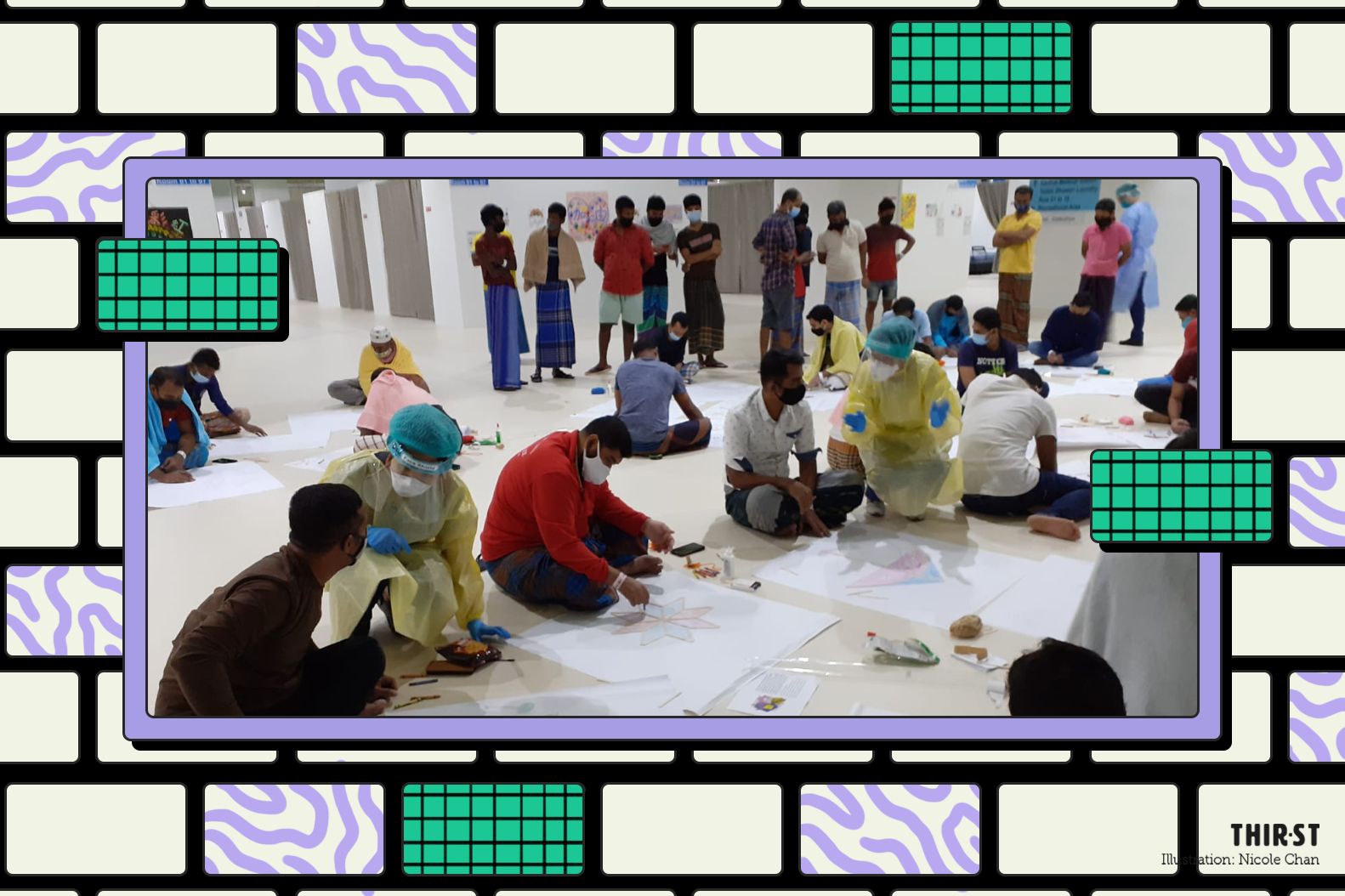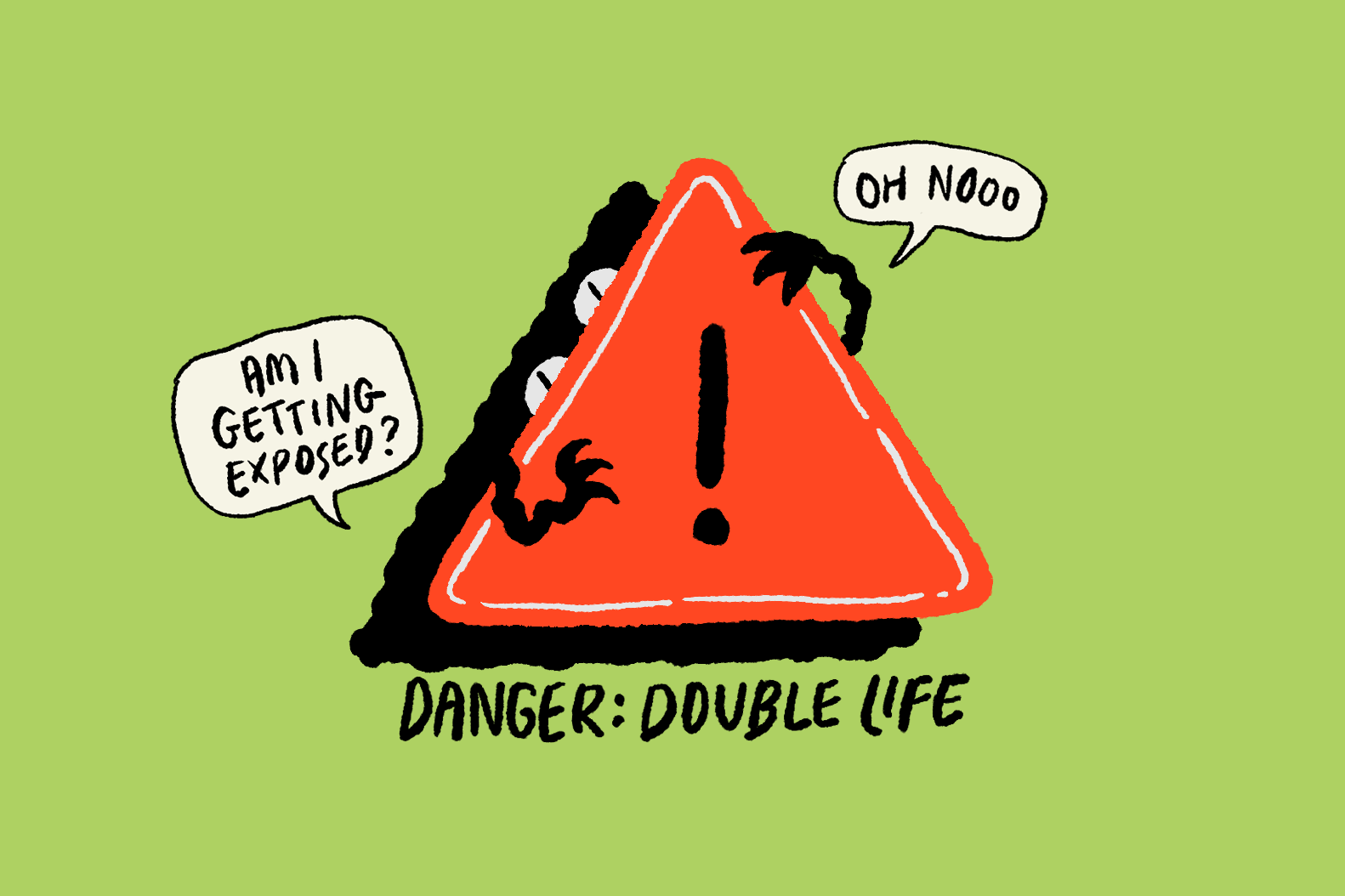The pandemic has affected all of us, but it has hit some groups harder than others.
Many healthcare workers haven’t been able to take leave in almost two years. And our migrant worker community, too, experienced the most restrictions in terms of their ability to move around freely.
While some of the measures have been eased, the issues facing migrant workers resurfaced recently when workers at a Jurong dormitory were frustrated with the lack of care even as COVID-19 cases started climbing again.
We also know that our migrant workers have been grappling with isolation and loneliness.
Pre-pandemic, our interactions with our migrant worker community were probably few and far between. But right now, it feels like they might as well be from another planet. Their problems seem so big and far away…
Or are they? What if I told you that there was a way for you to make a positive difference in their lives and support them through these trying times?
And no, you don’t need to be medically or legally trained to do so.
MEET MY BROTHER SG
Born out of the COVID-19 outbreak response, My Brother SG is a network of partners who are passionate about engaging and empowering our migrant brothers in Singapore.
While that might sound like a broad description, it’s precisely this broadness that sets My Brother SG apart.
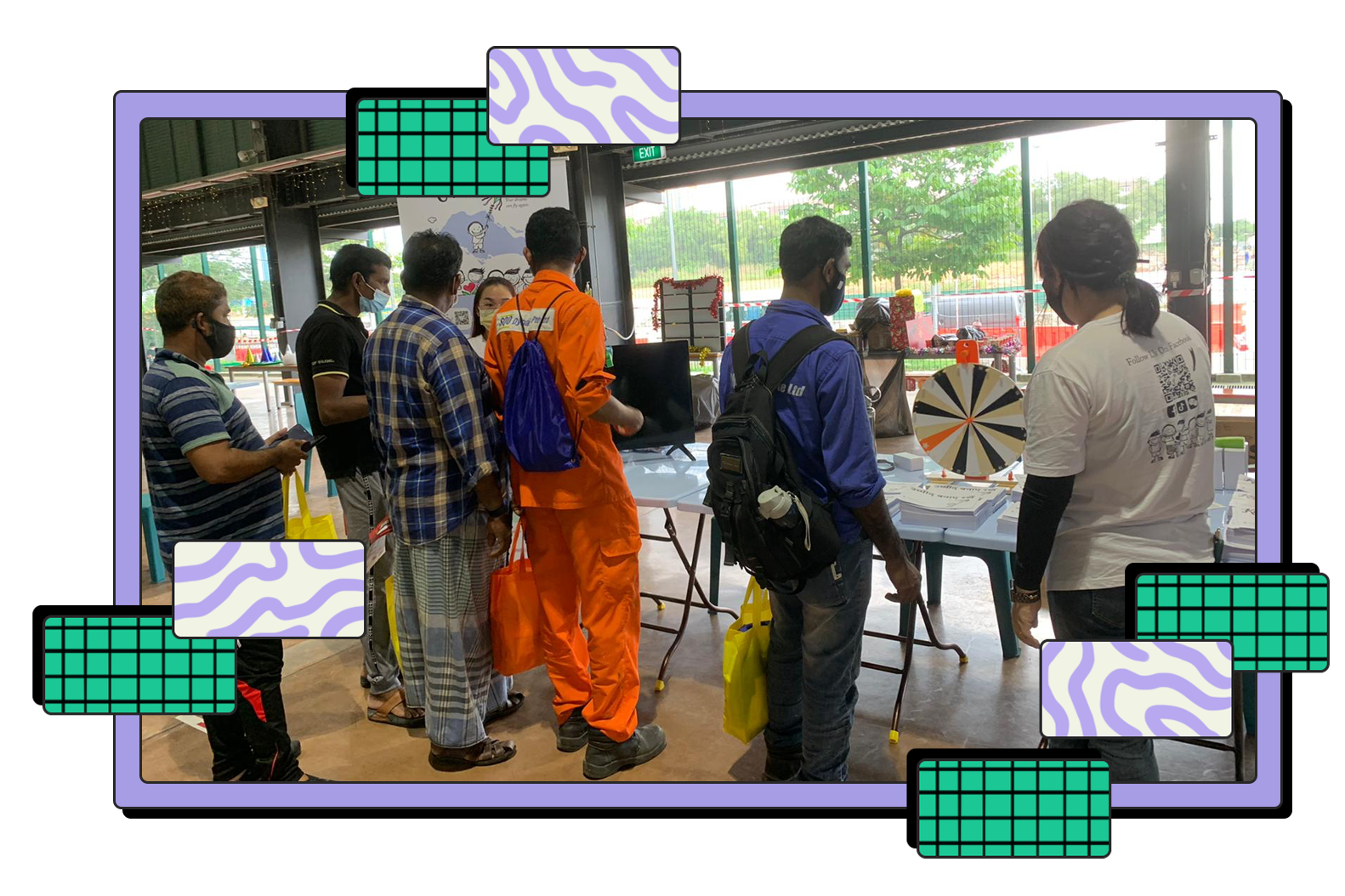
A quick look at its Get Involved page shows volunteer positions from social media management, graphic design and video editing; to translation, volunteer management and befriending.
Initiated by international non-profit Kitesong Global and the NUS Yong Loo Lin School of Medicine, My Brother SG brings together migrant worker-related organisations to ensure a nationally coordinated effort in risk communications and community engagement.
While a medical doctor and public health scholar herself, driving force Dr Tam Wai Jia shared that her path towards starting My Brother SG wasn’t so straightforward.
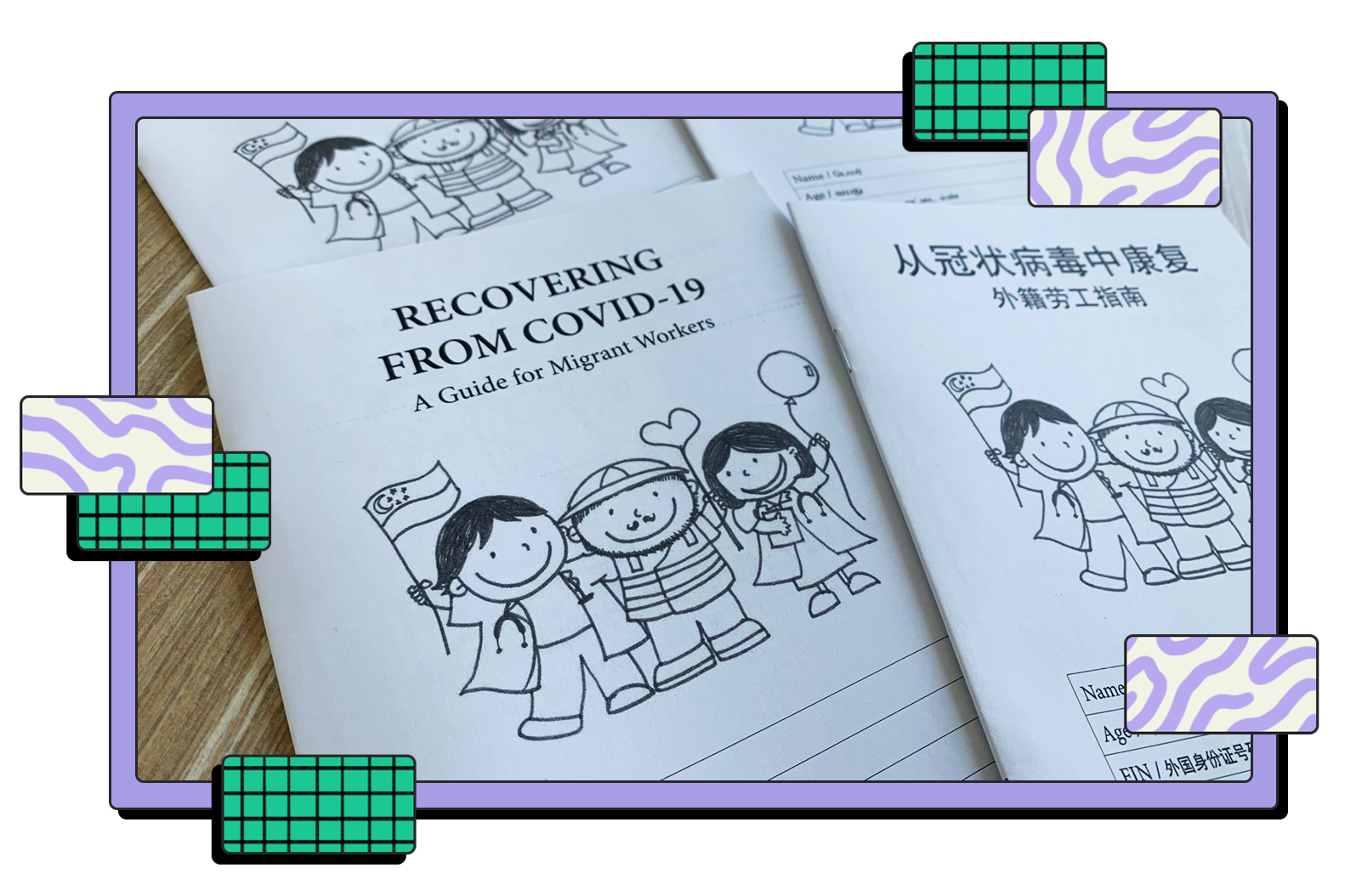
“As the pandemic unfolded, it was, strangely, my work as an artist, that opened the door to work with the migrant worker community,” said the founder of Kitesong Global and My Brother SG.
“Many migrant workers were confused by the many new measures that were put in place to slow the spread of the virus, and those admitted to Community Care Facilities were anxious, so I was asked to illustrate an orientation booklet to help with this.”
Wai Jia admits to being initially disappointed by the invitation to help in the outbreak via her gifts in illustration.
But little did she foresee that helping the migrant worker community in this way would help marry her gift in art and her public health background to fulfil a long-time dream of hers.
“When I was 17 years old, I had written in my medical school application that I hoped to work with the World Health Organization (WHO) someday.
“While I was at Johns Hopkins pursing my Master’s of Public Health, I desperately sought for opportunities based on my merits as a doctor. But none presented itself.”
“Because of the booklets, the chairman of the Global Outbreak Alert Response Network, WHO contacted me, showed me a diagram of the key pillars of an outbreak response, pointed to a section called risk communications and community engagement and said, ‘We’ve been lacking this piece of the puzzle and you’re doing exactly it. Let’s work together.’’”
And so, along with a growing network of government agencies, health institutions, non-profit organisations and volunteers, My Brother SG was birthed.
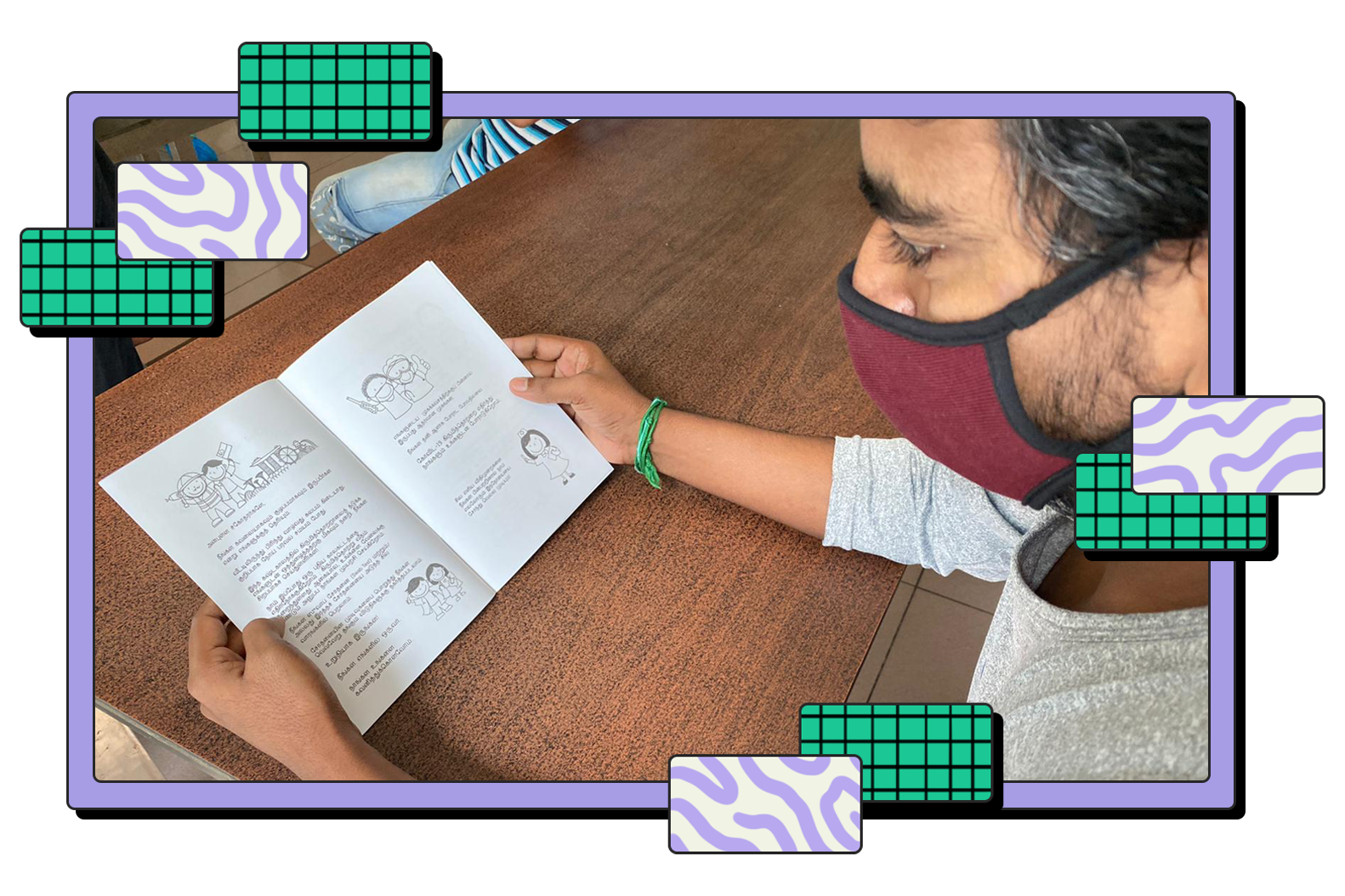
Said Wai Jia: “It was such a great privilege to be able to do this first as a volunteer, and later, with my supervisor’s support, in my professional capacity as Deputy Lead of Global Health & Community Service at NUS Yong Loo Lin School of Medicine to grow the work. I cannot thank God enough for amazing mentors who fully supported this work.”
Through a research project sponsored by WHO, the team was able to understand the needs on the ground better, which led to a nationwide digital campaign that includes multi-lingual health booklets, posters, comics, videos and face-to-face engagements for migrant workers.
The committee members currently meet once a month to discuss how they can align strategies to support the health of our migrant brothers.
NO STRAIGHTFORWARD SOLUTIONS
Observing that the morale among migrant workers has been low due to the prolonged lockdown, Wai Jia shared how she has been blessed by her interactions with our migrant brothers who have been incredibly resilient.
As tears started welling up in her eyes, she continued: “I’m always struck by how grateful they are. Either for the opportunity to work here or for anyone who shows concern for them, in spite of all the challenges they have faced.
“Even in the situation that they’re in, many of them choose to give of themselves. For example, one of my migrant worker friends, now a health ambassador for My Brother SG, started a Facebook group for his fellow migrant workers and he creates uplifting content for them.
“And for what? It’s not like he’s earning any money from this. It’s just his desire to give something back. Many of them are amazing like that.”
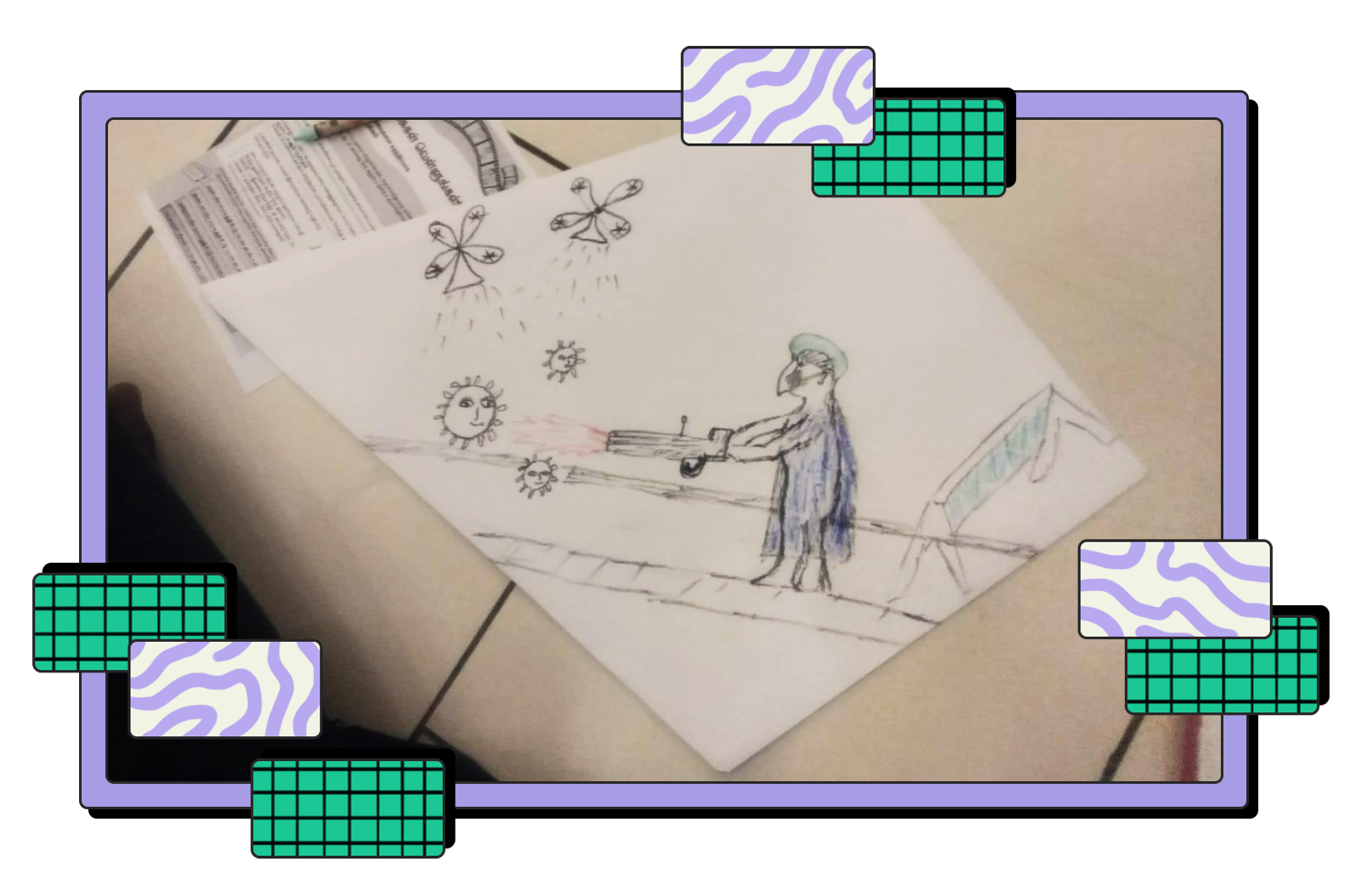
When asked what she thought of all the recent chatter on social media regarding the migrant worker community, Wai Jia replied: “When you actually get involved with the migrant worker community, you realise that the issues at hand are complex.
“I don’t believe in criticising from the sidelines. No one person or organisation can solve this problem alone. But there is something we all can do.”
For young people who feel that they are just on the fringes and watching all of this unfold, Wai Jia wants you to know that there are ways that you can actually help.
“I believe the way forward is to build authentic relationships with migrant workers, recognising that your own gifts are not too small. God sees and God cherishes them. It is not too late to step out and see what He can do through you.”
A case in point: It was her artistic background and work with Kitesong Global that paved the way for her to get involved in My Brother SG.
“My dream is to have every dormitory adopted by a church, every worker to be genuinely befriended by fellow Singaporeans.”
Wai Jia reasoned: “It happened not because I was great or smart or brilliant, but simply because of an act of surrender, however grudging it was. It was by God’s grace that He could use it.”
Encouraging young people and the wider Church to be salt and light, she said: “My dream is to have every dormitory adopted by a church, every worker to be genuinely befriended by fellow Singaporeans.”
YOU DON’T HAVE TO BE ON THE FRONTLINES TO SERVE
This was what struck Avelyn Aw, who is helping out with leading My Brother SG’s student core team as well as inducting new volunteers and coordinating translation work.
While she admits that she didn’t always have a clear desire or calling to serve the migrant worker community, she said: “COVID-19 exposed many needs of the migrant brothers and, along with social media, put this vulnerable group in the spotlight.
“Many individuals and organisations stepped up to help, and I was inspired by the goal of My Brother SG: to synergise the efforts and resources between all these different entities that shared the same heart of serving the migrant worker community.”
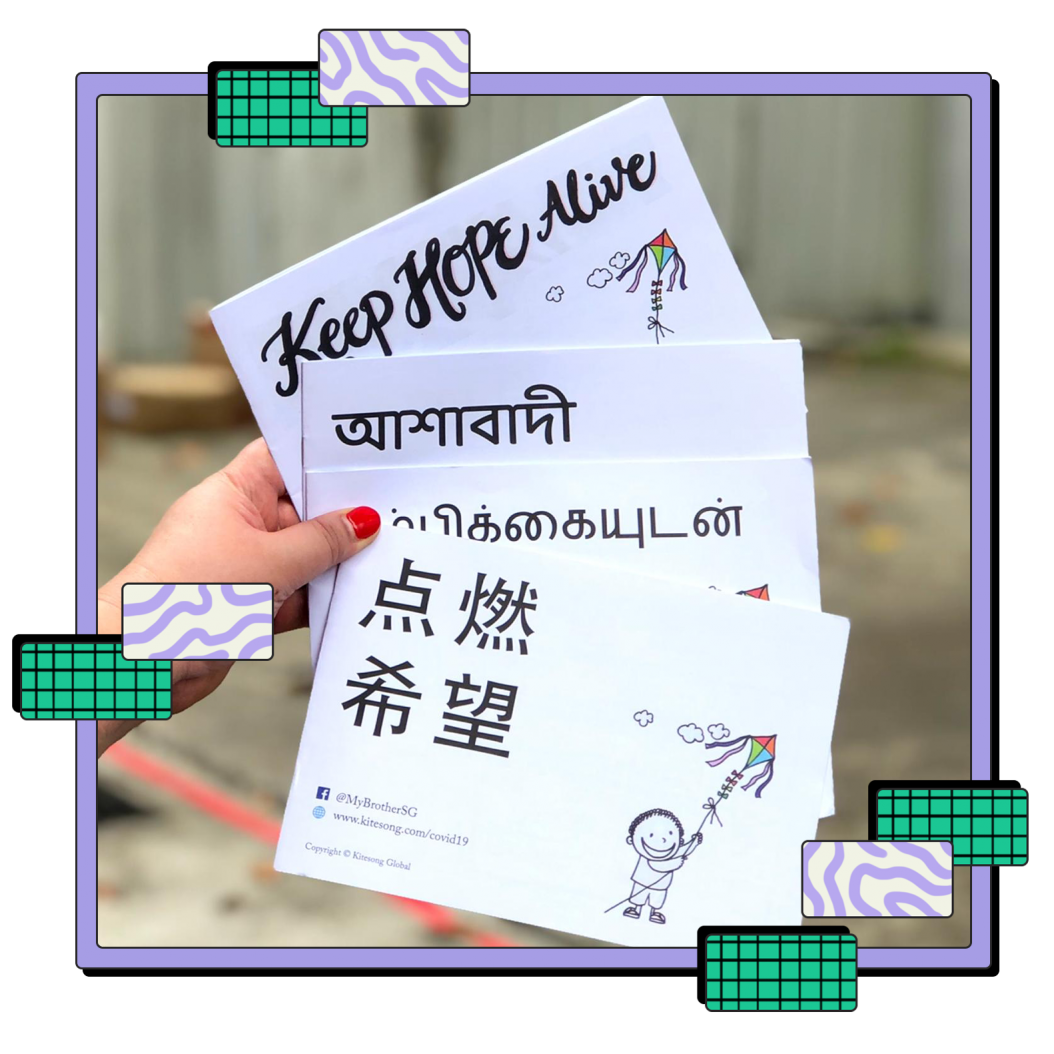
As a medical student from NUS Yong Loo Lin School of Medicine, Avelyn added that while community service has always been integrated into school curriculum since young, it is easy to grow up thinking that volunteering and service equates to physical exertion and face-to-face interaction with beneficiaries.
“But in My Brother SG, there is a lot of back-end work, and sometimes it doesn’t seem as ‘heroic’ as our doctors and nurses in PPEs at the dormitories and isolation facilities,” she explained.
“This journey has been humbling because it made me realise that there was pride and selfishness in the way that I was serving and volunteering. I am still learning what it means to genuinely serve and love those around me, and not on my own terms.”
As I came away from my interview with Wai Jia, I was very encouraged by the opportunities that exist today, in the midst of the pandemic, to support and connect with the migrant worker community.
As someone who used to work in a migrant worker NGO many years ago, there weren’t as many opportunities back then. Generally speaking, you needed to be trained in social work, medicine or law to volunteer.
So don’t wait anymore. If hearing about what migrant workers are going through strikes a cord, don’t doubt yourself — head over to My Brother SG’s volunteer page to see how you can get involved.
No gift is too small to be used by God to be a blessing.
- What are the gifts and talents that God has blessed you with? Don’t despise them!
- Are there specific burdens that God is placing on your heart? How can you respond to that?
- What are some ways you can love the migrant worker community in Singapore?


